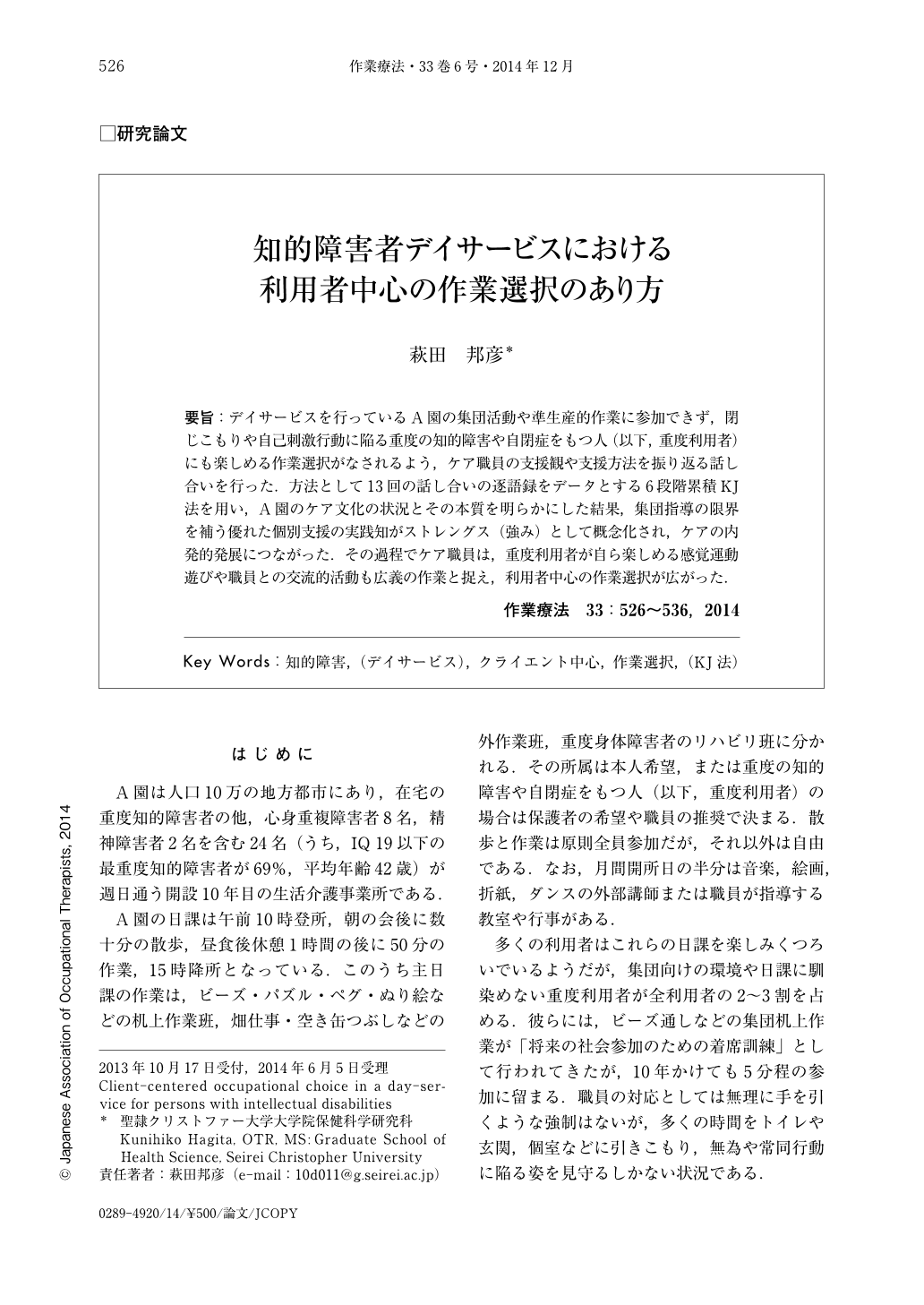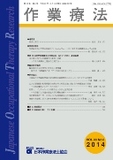Japanese
English
- 販売していません
- Abstract 文献概要
- 1ページ目 Look Inside
- 参考文献 Reference
- サイト内被引用 Cited by
要旨:デイサービスを行っているA園の集団活動や準生産的作業に参加できず,閉じこもりや自己刺激行動に陥る重度の知的障害や自閉症をもつ人(以下,重度利用者)にも楽しめる作業選択がなされるよう,ケア職員の支援観や支援方法を振り返る話し合いを行った.方法として13回の話し合いの逐語録をデータとする6段階累積KJ法を用い,A園のケア文化の状況とその本質を明らかにした結果,集団指導の限界を補う優れた個別支援の実践知がストレングス(強み)として概念化され,ケアの内発的発展につながった.その過程でケア職員は,重度利用者が自ら楽しめる感覚運動遊びや職員との交流的活動も広義の作業と捉え,利用者中心の作業選択が広がった.
Persons with severe intellectual and/or autistic disabilities have difficulties participating in group activities or engaging in productive occupation, and as a result often fall into withdrawal or self-stimulated behaviors. Therefore, in order to assist caregivers in choosing pleasant occupations for the persons with intellectual or autistic disabilities, this study used group meetings in a A-en day service center to enable caregivers to express their viewpoints and methods of support. A cumulative six-step KJ-method was used to extract and prioritize the data from 13 group discussions by caregivers. The circumstances and priorities of the caring culture of A-en was revealed, and the practical value of personalized support that compensates for the limits of group care was conceptualized for its strength which lead to spontaneous care development. As a result, caregivers grasped the broad occupational value of sensory-motor play and interaction activities for persons with serious intellectual or autistic disabilities. Therefore client-centered occupational choice was expanded.

Copyright © 2014, Japanese Association of Occupational Therapists. All rights reserved.


